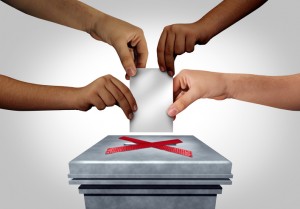When New Jersey state law was changed a decade ago to allow for nonpartisan local elections to be held alongside partisan statewide and national elections, the Montclair Township Council considered and then rejected a proposal to move our local elections from May to November. Opponents of the reform claimed that there was no evidence suggesting it would solve the problem of low voter participation, or even that such a problem existed.
In reality there was ample evidence back then that “off-cycle” elections tend to depress turnout. The years since have made it ever more clear that Montclair’s practice of continuing to hold its local elections on a Tuesday in May is not just unwise but unjust, an insidious example of “soft” voter suppression. And along with the launch last week of our petition to finally end the practice, we’ve gone out and gotten the receipts to prove it:
Turnout in our local elections has gotten even more embarrassing. First, in the three local elections that have taken place since the council’s 2012 decision, turnout averaged just 25%. More striking is the difference between the turnout in our May elections and November elections. Last year, more than twice as many votes were cast in the November election as in the unusually hard-fought municipal contest in May, despite both featuring universal mail-in voting. In 2016—four years after the Council decided turnout in local elections wasn’t a problem—the difference between turnout in November and May was more than sixty percentage points: 68% in November compared to just 7% in May.
Nationwide, municipalities that have consolidated elections have seen significant increases in turnout. In the years since Montclair passed on making the change, data from across the country have shown the benefits of pairing traditionally lower-turnout local elections with other contests. In California, a law compelling localities with low-turnout elections like ours to move voting to November has led to a boom in participation; a recent report by California Common Cause found a tripling of turnout in cities which moved their local elections from off-cycle to November. Austin, the Montclair of Texas, saw its 11% turnout in May 2012 jump to 42% in November 2018. Blacksburg, a town of Montclair’s size in Virginia—the only other state besides New Jersey to hold legislative and gubernatorial races in odd-numbered years—shifted its municipal elections from even-numbered Mays to odd-numbered Novembers and saw turnout double.
Research shows voters in off-cycle municipal elections are less representative of the local electorate. Crucially, a growing body of academic research also suggests holding our local elections in November would make them more representative, with studies showing voters in off-cycle elections to be farther from the median voter in terms of ideology and attachment to special interests, and more likely to be homeowners, older, and white.
It is this final fact that underscores why moving Montclair’s elections from May to November is so important, and about more than increasing overall turnout, or putting the approximately $100,000 the Township spends every municipal electoral cycle towards other pressing local needs. It is about ending a not-so-soft form of voter suppression that favors some local voters over others.
And unlike in 2012, in 2021 no one can say there is no evidence.
The above was written with the research assistance of Thomas Kozma, a student at Rutgers University’s Edward J. Bloustein School of Planning and Public Policy, and a columnist for the Daily Targum, Rutgers’ student newspaper. Kozma’s complete report for Vote Montclair, including academic citations, can be found here.

